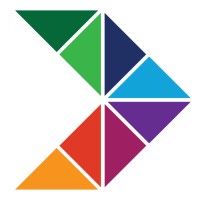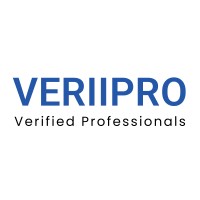

MS Fabric Data Specialist
⭐ - Featured Role | Apply direct with Data Freelance Hub
This role is for an MS Fabric Data Specialist with a contract length of "unknown," offering a pay rate of "$XX/hr." Key skills include proficiency in MS Fabric, Python programming, data modeling, and data integration. A Bachelor's degree and 5+ years of relevant experience are required.
🌎 - Country
United States
💱 - Currency
$ USD
-
💰 - Day rate
-
🗓️ - Date discovered
July 20, 2025
🕒 - Project duration
Unknown
-
🏝️ - Location type
Unknown
-
📄 - Contract type
Unknown
-
🔒 - Security clearance
Unknown
-
📍 - Location detailed
Princeton, NJ
-
🧠 - Skills detailed
#Scripting #Data Science #AWS (Amazon Web Services) #Visualization #Data Governance #Datasets #Dataflow #Cloud #Python #BI (Business Intelligence) #Automation #Azure #SQL (Structured Query Language) #Documentation #Programming #Computer Science #Data Processing #Tableau #Databases #Microsoft Power BI #Data Engineering #Data Modeling #Semantic Models #Data Analysis #Business Analysis #"ETL (Extract #Transform #Load)" #Data Integration
Role description
Heading 1
Heading 2
Heading 3
Heading 4
Heading 5
Heading 6
Lorem ipsum dolor sit amet, consectetur adipiscing elit, sed do eiusmod tempor incididunt ut labore et dolore magna aliqua. Ut enim ad minim veniam, quis nostrud exercitation ullamco laboris nisi ut aliquip ex ea commodo consequat. Duis aute irure dolor in reprehenderit in voluptate velit esse cillum dolore eu fugiat nulla pariatur.
Block quote
Ordered list
- Item 1
- Item 2
- Item 3
Unordered list
- Item A
- Item B
- Item C
Bold text
Emphasis
Superscript
Subscript
The MS Fabric Data Specialist is responsible for consolidating datasets, building dataflows, and running Python notebooks in Microsoft Fabric to generate new semantic models. This role requires a deep understanding of MS Fabric, data integration, and data modeling techniques to support the organization's data-driven decision-making processes.
Primary Responsibilities
• Dataset Consolidation: Integrate and consolidate datasets from various sources within MS Fabric to ensure data consistency and accuracy.
• Dataflow Development: Design, build, and maintain dataflows in MS Fabric to automate data processing and transformation tasks.
• Python Notebooks: Utilize Python notebooks within MS Fabric to perform data analysis, create visualizations, and develop new semantic models.
• Semantic Modeling: Generate and maintain semantic models to support business intelligence and analytics initiatives.
• Collaboration: Work closely with data engineers, data scientists, and business analysts to understand data requirements and deliver solutions that meet business needs.
• Documentation: Document dataflows, processes, and models to ensure knowledge sharing and maintainability.
• Performance Optimization: Monitor and optimize the performance of dataflows and models to ensure efficient data processing.
Required Qualifications
• Proficiency in MS Fabric: Extensive experience working with Microsoft Fabric, including dataset consolidation, dataflow development, and Python notebooks.
• Data Integration: Strong understanding of data integration techniques and best practices.
• Python Programming: Proficiency in Python for data analysis, scripting, and automation.
• Data Modeling: Experience in creating and maintaining semantic models for business intelligence and analytics.
• Analytical Skills: Strong analytical and problem-solving skills to identify and resolve data-related issues.
• Collaboration: Excellent communication and collaboration skills to work effectively with cross-functional teams.
• Documentation: Ability to document processes, dataflows, and models clearly and concisely.
Preferred Qualifications
• Experience with BI Tools: Familiarity with business intelligence tools such as Power BI, Tableau, or similar.
• Cloud Platforms: Experience working with cloud platforms such as Azure, AWS, or Google Cloud.
• SQL: Proficiency in SQL for querying and managing relational databases.
• Data Governance: Understanding of data governance principles and practices.
Education And Experience
• Bachelor's degree in Computer Science, Business Administration, Finance, or related fields.
• 5+ years experience in analytics, automation and ERP implementations.





